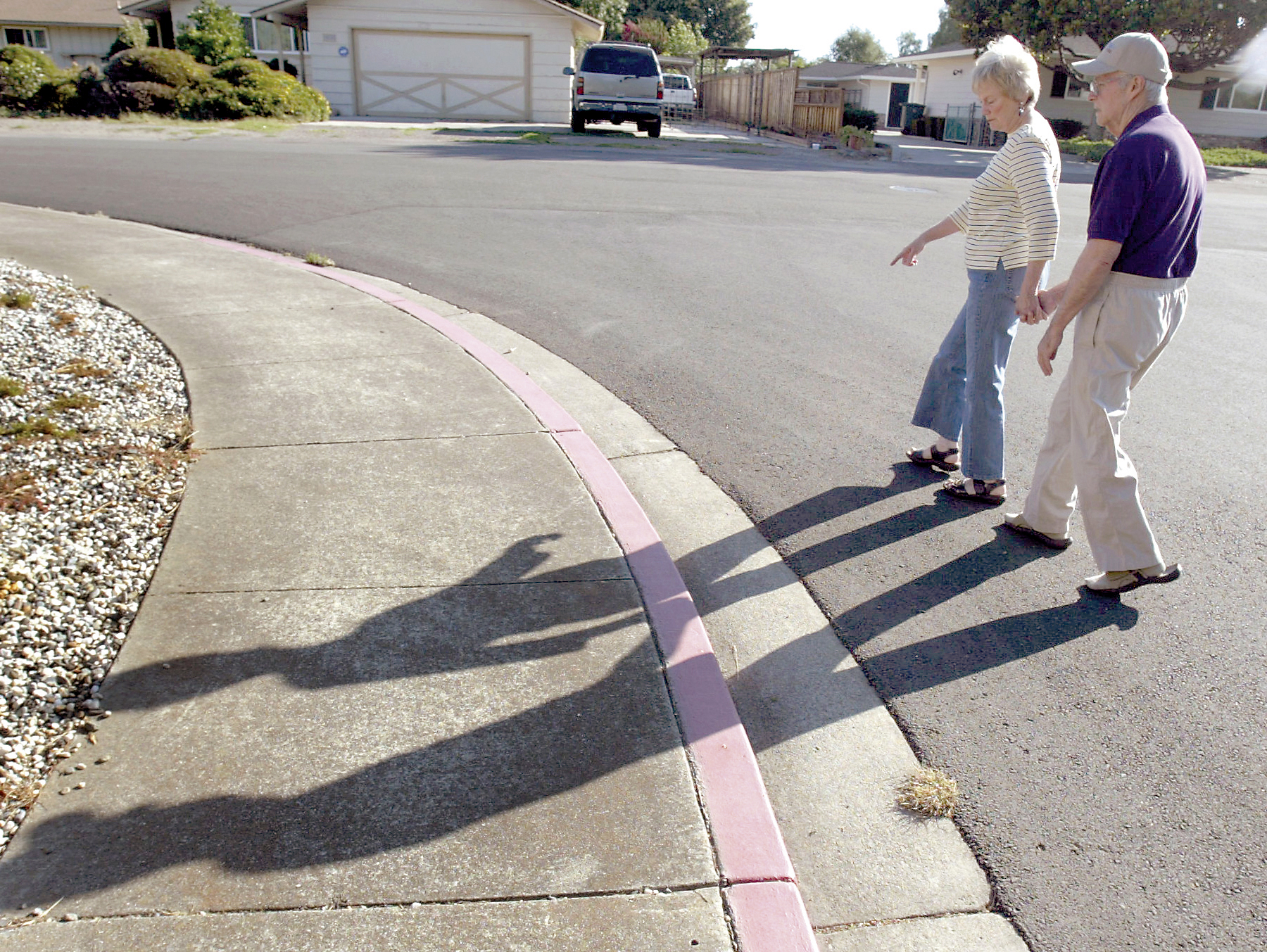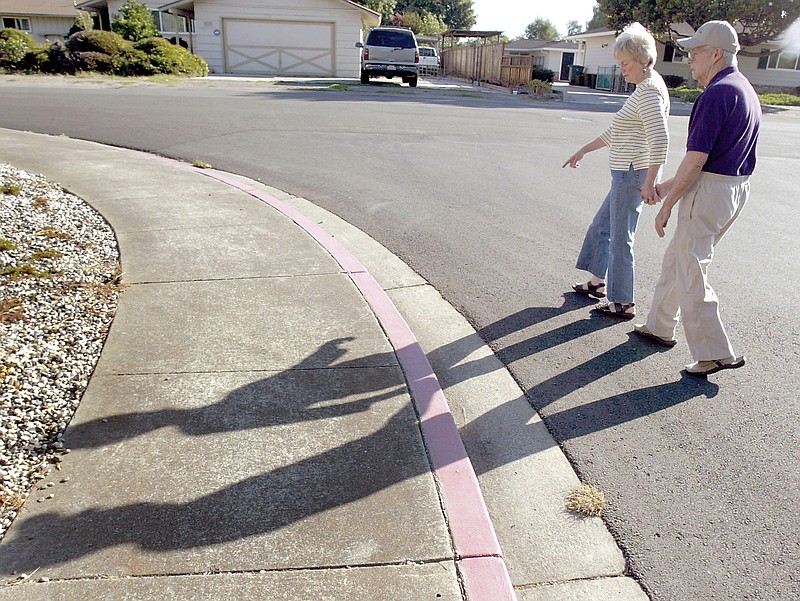 Loretta Wales, left, points out a curb to her husband and Alzheimer's patient Richard Wales, during a walk around the neighborhood of Greengables Villa elderly care home in Union City, Calif. Wales, who like many that suffer from some form of dementia and are prone to wandering away from home, moved into the full-time care facility almost a year ago. (MCT)
Loretta Wales, left, points out a curb to her husband and Alzheimer's patient Richard Wales, during a walk around the neighborhood of Greengables Villa elderly care home in Union City, Calif. Wales, who like many that suffer from some form of dementia and are prone to wandering away from home, moved into the full-time care facility almost a year ago. (MCT)Around these parts, Mom outlives Dad and Grandma outlives Grandpa. At least that's the conventional wisdom.
It holds up, but a new study shows the gap is shrinking nationwide and especially in the Chattanooga area, where every county but one - Grundy - boasted extra years for men while life expectancies for women mostly stayed the same or dwindled by a few months.
"Men seem to know they need to take care of themselves more," said Ione Farrar, a community health planner at the Chattanooga-Hamilton County Health Department.
Researchers at the University of Washington used data taken from death certificates culled by the Centers for Disease Control and Prevention and tracked life expectancy in every American county from 1987 to 2007.
More than 300 U.S. counties had declines in life expectancy for women, mostly in the Southeast and Appalachia.
Closer to home in Marion, McMinn, Polk and Rhea counties, female life expectancies dropped, as they did in Dade County, Ga. Women from Polk County took the worst hit, losing an average of six months, the study showed.
"I can honestly say I don't know why," said Beth Delaney, spokeswoman for the Southeast Regional Health Office, which represents 10 rural county health departments, including Hamilton, Bledsoe, Bradley, Grundy, McMinn, Marion, Meigs, Polk, Rhea and Sequatchie.
The study does not attempt to conclude why women took bigger hits than men, but it offers the usual recommendations on how to combat premature deaths.
"If the leading four risk factors were addressed (smoking, high blood pressure, elevated blood glucose and [obesity]), life expectancy in 2005 would increase 4.9 and 4.1 years, respectively, for males and females," the study concluded.
Other Chattanooga-area counties in Tennessee, Alabama and Georgia had slight gains for women, mostly by a few months. Men, on the other hand, gained more than two years in Bledsoe, Bradley, Hamilton, Marion and Sequatchie counties, along with DeKalb County, Ala., and Whitfield County, Ga.
Metropolitan areas showed the most encouraging numbers. Since 1987, Hamilton County men have gained three years while women picked up almost two. Those same men and women live the longest in the Chattanooga metropolitan area, with men averaging 73.4 years and women 79.5, according to the study.
Grundy County's men lost about four months to finish at 69.1 years, according to the survey, making it the only county near Chattanooga without a gain in the men's category.
In explaining the drop, Delaney cited an alarming statistic - 7,122 residents for every primary care provider in Grundy County. The state's recommended ratio is 631 patients for every primary care provider, records show.
Farrar, the community health planner for Hamilton County, said urban areas made gains because of access to health care and recent public policy changes, such as strengthening seat belt and non-smoking laws.
"Smoking rates have dropped here," she said. "And you can't forget increases in tobacco taxes over the last few years. I think money is a big motivator for people."
Nationally, New York's Manhattan reported two stunning life expectancy gains over the last two decades, from 76.6 years to 83.7 years for women and from 65.8 years to 78.7 years for men - just short of 13 years.
Researchers credited public health initiatives recently enacted in New York, including policies designed to curb public smoking and eliminate unhealthy fats in food.
